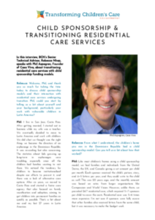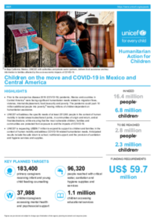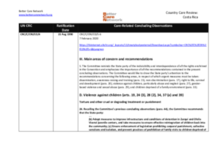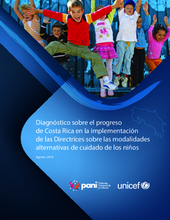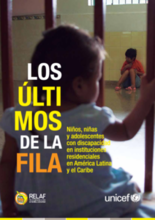This country page features an interactive, icon-based data dashboard providing a national-level overview of the status of children’s care and care reform efforts (a “Country Care Snapshot”), along with a list of resources and organizations in the country.
demographic_data
childrens_living_arrangement
children_living_without_bio
adoption
key_stakeholders
Key Stakeholders
Add New DataOther Relevant Reforms
Add New Datadrivers_of_institutionalisation
Drivers of Institutionaliziation
Add New Datakey_research_and_information
Key Data Sources
Add New DataPrevalence and number of children living in institutional care: global, regional, and country estimates
Acknowledgements
Data for this country care snapshot was contributed by the Working Group that completed the Tracking Progress Initiative Tool in Costa Rica, facilitated by SOS Aldeas Infantiles (Children's Villages) Costa Rica.
Displaying 1 - 7 of 7
In this interview, BCN’s Senior Technical Advisor, Rebecca Nhep, speaks with Phil Aspegren, Founder of Casa Viva, about transitioning residential care services with child sponsorship funding models.
This edition of Humanitarian Action for Children – UNICEF’s annual humanitarian fundraising appeal – describes the ongoing crises affecting children on the move and COVID-19 in Mexico and Central America (including unaccompanied and separated children); the strategies that UNICEF is using to respond to these situations; and the donor support that is essential in this response.
This country care review includes the care related Concluding Observations adopted by the Committee on the Rights of Persons with Disabilities and the Committee on the Rights of the Child.
Este diagnóstico tiene análisis del progreso de Costa Rica en la implementación de las Directrices sobre las modalidades alternativas de cuidado de los niños.
Este informe, presenta los resultados de ese estudio, examina las condiciones en que se encuentran los niños y los adolescentes con discapacidad en relación con el ejercicio de sus derechos, y propone algunas líneas de acción estratégica para mejorar las políticas y las prácticas en dirección a la garantía y la restitución del derecho de todos los niños, las niñas y los adolescentes a crecer en un ámbito familiar y comunitario, y sin discriminación.
The organizations profiled in these case studies have pioneered effective transitions from residential to family-based care.
This one-page presentation outlines the research questions, data, methods, results, literature review, discussion and implications of a study that looked at the effects of a child’s relationship to head of household, age, and orphan status on the severity of discipline they receive in Ghana, Iraq, Costa Rica, Vietnam,and Ukraine.

